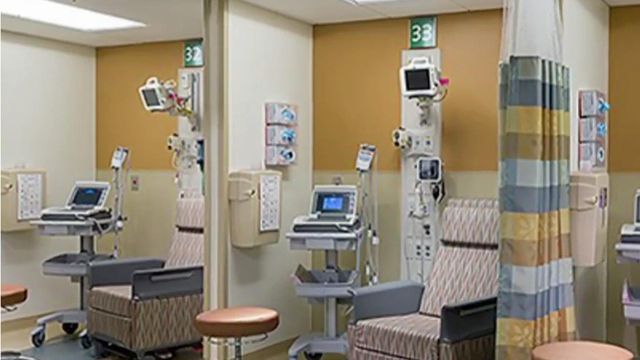Not urgent? Expect to sit up in the ER
Hospital officials say the reason the ER often runs out of beds is because the general population is growing and aging. But beds are becoming less important in some hospitals.
Posted — UpdatedAs an avid runner, 20-year-old Katherine Wong never thought running a 5K race would land her in the ER.
"I just overheated at the finish line and passed out for a few minutes," Wong said.
Wong is one of nearly 59,000 patients treated in the Emergency Department of UNC's Rex Raleigh Hospital this year, which is nearly 10 percent more patients than last year.
Hospital officials say the reason the ER often runs out of beds is because the general population is growing and aging. But beds are becoming less important in some hospitals.
The different style of treatment is called vertical care, and it's used for non-urgent patients. Hospital officials say it's more efficient.
"Instead of a patient waiting in a bed for all of their tests, they can get their tests, go to a chair, wait for results (and) have another patient go into that bed," Butler said.
The vertical care allows doctors to use more of their space.
"As patients continue to come in, we are going to see them wherever we can," said Wake Emergency Physician Dr. Jim Palombaro.
Emergency doctors at WakeMed also moved to vertical care, and they say it works: The wait time to see a doctor is down even though the number of patients coming through the door is up 5 to 7 percent every year. During the 2016 fiscal year, there were more than 286,000 emergency department visits, according to WakeMed officials.
"If you added all of the wait time, cut the wait time by 1.7 years in a six-month period," said Chantal Howard, vice president of nursing at WakeMed's Raleigh campus.
Doctors say there is a psychological impact for the physician and the patient, too. Palombaro said lying down in a bed makes a patient appear to be more sick.
Vertical care isn't just catching on in the Triangle, though. It's a growing trend around the country.
At Emory University Hospital in Atlanta, the ER created vertical treatment rooms for short-term treatment. The goal is to get the patient the care they need and then move on to the next one.
"The most dangerous patients are those you haven't seen," Howard said. "So, you want to be able to see all of these folks."
Patients like Wong, who was in a bed, also appreciate the new care so both she and another patient can be treated faster.
"I also want to get out of here as quick as possible so someone else can have this wonderful bed," Wong said.
With a little fluid and some monitoring, Wong could be moved to vertical care, too, and then on her way out of the hospital.
Rex and WakeMed have also opened several Urgent Care locations and smaller hospitals across Wake County to help with the growing number of patients. Rex is also building a brand new, 50-bed facility in Holly Springs that has its own emergency department.
• Credits
Copyright 2024 by Capitol Broadcasting Company. All rights reserved. This material may not be published, broadcast, rewritten or redistributed.





